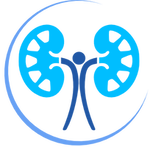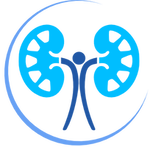All Things Kidney Diseases
The kidneys are responsible for a variety of vital functions, such as fluid and mineral balance, blood pressure, and blood filtration.
Dive into all things kidney diseases below.
Dive into all things kidney diseases below.
Chronic Kidney Disease
|
According to the National Kidney Foundation, 26 million Americans have Chronic Kidney Disease and millions of others are at an increased risk. Therefore you may already know someone affected by this disease. If left untreated, Chronic Kidney Disease can progress to kidney failure with need for dialysis or kidney transplant. As with most conditions, if detected early, kidney disease can be managed appropriately to limit the risk of leading to more complicated conditions.
|
Hypo- Hypernatremia
Hyponatremia is an abnormally low level of sodium in the blood.
Hypernatremia is an abnormally high level of sodium in the blood. Sodium helps to balance electrolytes.
This often can indicate an underlying medical condition or be a result of drinking too much or too little fluid.
Hypernatremia is an abnormally high level of sodium in the blood. Sodium helps to balance electrolytes.
This often can indicate an underlying medical condition or be a result of drinking too much or too little fluid.
Hypo- Hyperkalemia
Hypokalemia is an abnormally low level of potassium in the blood.
Hyperkalemia is an abnormally high level of potassium in the blood.
Kidney disease is the most common cause of Hyperkalemia. When the kidneys are damaged or not working properly, they have a hard time removing potassium from the body. Too much potassium in the body can lead to irregular heart beat or heart attack.
Hyperkalemia is an abnormally high level of potassium in the blood.
Kidney disease is the most common cause of Hyperkalemia. When the kidneys are damaged or not working properly, they have a hard time removing potassium from the body. Too much potassium in the body can lead to irregular heart beat or heart attack.
Proteinuria
Proteinuria is when protein appears in the urine. One of the kidney's functions is to keep protein in the body. When protein appears in the urine it can indicate that the filters in the kidneys are damaged by disease. This is tested and monitored with urine studies.


